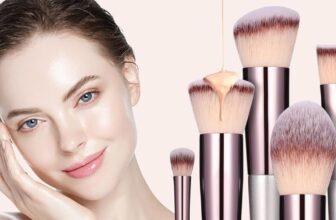Is skincare a scam? This question has sparked much debate.
Many people wonder if all the products and routines are worth the time and money. In a world filled with endless skincare options, it’s easy to feel overwhelmed. Companies promote various creams, serums, and treatments, each claiming to improve your skin.
Some swear by their routines, while others see little to no change. This raises an important question: are we wasting our resources on something that may not deliver results? Understanding the facts behind skincare can help you make informed choices. Let’s explore the truth about skincare, the science behind it, and whether it’s really worth your investment.

Credit: www.youtube.com
The Skincare Industry At A Glance
The skincare industry has grown rapidly over the years. It includes a wide range of products. These products promise clear skin and youthful appearance. Many people trust skincare brands for solutions. But is it all worth the hype? Let’s explore the details.
Explosive Market Growth
The skincare market has exploded in recent years. It is now worth over $150 billion globally. New brands pop up every day. Consumers seek natural and organic options. Many companies market their products as essential. This creates a strong demand.
Social media influences buying habits. Platforms like Instagram showcase skincare routines. Influencers promote products, making them popular. This trend boosts sales significantly. The rise of e-commerce also helps. Shoppers enjoy the convenience of online shopping.
Consumer Spending Habits
Brand loyalty is strong in this industry. Once consumers find a product they like, they stick to it. Many people trust brands with positive reviews. This affects their purchasing decisions. The search for effective skincare leads to overspending.
“`Myth Vs. Fact: The Skincare Debate
The skincare industry is filled with claims. Some seem too good to be true. Is skincare really effective? This section explores common myths and facts about skincare. Understanding these can help you make better choices.
Common Misconceptions
Many people believe skincare products do not work. Here are some common myths:
- All products are the same. Many products differ in ingredients and effects.
- Expensive means effective. Price does not always determine quality.
- Natural is always better. Natural ingredients can cause reactions too.
- Skincare is only for women. Skincare is important for all genders.
Scientific Evidence For Skincare Efficacy
Research supports many skincare claims. Here are key findings:
| Ingredient | Benefit |
|---|---|
| Retinoids | Reduce wrinkles and improve skin texture. |
| Hyaluronic Acid | Hydrates and plumps the skin. |
| Vitamin C | Brightens skin and fights free radicals. |
| Niacinamide | Reduces redness and improves skin barrier. |
Studies show these ingredients can benefit skin health. Always check for research-backed products.
Ingredient Spotlight
Understanding skincare ingredients can help you make smart choices. Some ingredients do work wonders, while others may cause doubt. This section highlights effective ingredients and those that raise questions.
Active Ingredients That Work
Active ingredients are key to effective skincare. They target specific skin issues. Here are some that show real results:
- Retinol: Helps reduce wrinkles and improves skin texture.
- Vitamin C: Brightens the skin and reduces dark spots.
- Hyaluronic Acid: Provides deep hydration and plumps the skin.
- Salicylic Acid: Clears acne by unclogging pores.
These ingredients have scientific backing. They are proven to deliver results.
Controversial Compounds In Skincare
Some ingredients spark debate among experts. Their safety and effectiveness remain uncertain. Here are a few notable compounds:
- Parabens: Preservatives linked to health concerns.
- Fragrance: Can cause irritation for sensitive skin.
- Alcohol: Often drying and irritating.
- Sulfates: May strip natural oils from the skin.
Choosing products with these ingredients requires caution. Research is important before making a decision.
Marketing Tactics Or Genuine Benefits?
Skincare products fill our stores and online shops. Many promise glowing skin and youthful looks. But do they deliver? The lines blur between effective products and clever marketing. Understanding this can help you make better choices.
Let’s explore the tactics brands use. We will also look at real results. This will help reveal the truth about skincare.
Analyzing Skincare Advertisements
Advertisements often catch our attention. They use bright colors and happy models. Claims like “miracle cream” or “instant results” sound appealing. But what do these words really mean?
Words can mislead. Some products use fancy terms. Ingredients may sound impressive, but they might not work. Brands often focus on emotions. They want you to feel like you need their product.
Look for clear information. Check for scientific proof. If a product claims to change skin in days, ask how. Good ads provide details, not just promises.
Case Studies: Promises Vs. Results
Some products receive high praise. Users share glowing reviews online. Yet, results can vary greatly. One study showed that 70% of users saw no change after using a popular cream.
Another case involved a well-known serum. It claimed to reduce wrinkles in two weeks. Users expected results but found little difference after a month.
Real-life experiences tell a different story. Many consumers feel disappointed. They wish for effective results rather than just marketing hype.
Investigating these cases reveals a pattern. Skincare often depends on skin type and lifestyle. What works for one may not work for another.
Understanding this helps in making informed decisions. Do not rely solely on advertisements. Look for products based on research and reviews.
Skincare Routines: Necessity Or Excess?
Skincare routines are everywhere. Some people swear by them. Others think they are just a marketing trick. Are these routines truly necessary? Or are they simply excess?
The Basics Of Skincare
Understanding the basics can help clear confusion. A simple skincare routine usually includes:
- Cleansing: Removes dirt and oils.
- Toning: Balances skin’s pH.
- Moisturizing: Hydrates and protects the skin.
- Sun Protection: Shields skin from UV rays.
These steps help maintain healthy skin. Many find them essential for daily care. Keeping skin clean and moisturized is vital.
When Skincare Becomes Overwhelming
Skincare can feel like a maze. With countless products, it’s easy to get lost. Here are some common issues:
- Too many products can irritate the skin.
- Conflicting ingredients may harm instead of help.
- Spending too much money on unnecessary items.
Many people end up confused. A simple routine often works best. Focus on what your skin needs. Avoid trends that promise quick fixes.
Consider this table for a clearer view:
| Product Type | Purpose | Necessity |
|---|---|---|
| Cleanser | Removes impurities | Essential |
| Toner | Balances skin | Optional |
| Moisturizer | Keeps skin hydrated | Essential |
| Sunscreen | Protects from UV | Essential |
Choose wisely. A streamlined routine can save time and money. Focus on what works for you.
The Price Tag Of Beauty
Beauty comes with a cost. Skincare products can be expensive. Many people wonder if they need to spend so much. Are high prices a sign of quality? Or is it just marketing? Understanding the cost of skincare helps make better choices.
Cost Of Skincare Products
Skincare products vary widely in price. You can find cleansers for a few dollars. Luxury brands may charge hundreds. Why such a difference? Sometimes, packaging and branding drive prices up.
Many believe that expensive products work better. But is that true? Some budget-friendly options have great reviews. They often contain similar ingredients. It’s important to read labels and understand what you buy.
Are Expensive Brands Better?
High price does not always mean high quality. Many expensive brands focus on marketing. They spend a lot on ads and celebrity endorsements. This can inflate prices significantly.
Some cheaper brands offer effective solutions. Their ingredients may be just as good. It helps to look for products with proven results. Consumer reviews can also guide choices. Always prioritize what works for your skin.
Professional Perspectives
Understanding skincare requires insights from experts. Professionals like dermatologists and estheticians provide valuable views. Their opinions help clarify myths and facts about skincare.
Dermatologists Weigh In
Dermatologists are medical doctors. They specialize in skin health. Their expertise is crucial for understanding skincare products.
Many dermatologists believe that skincare is not a scam. They emphasize the importance of:
- Sun protection: Sunscreen prevents skin damage.
- Moisturization: Hydrated skin is healthier.
- Cleansing: Regular cleansing removes dirt and oil.
Dermatologists often recommend simple routines. They focus on effective ingredients like:
- Retinoids: Help with aging and acne.
- Salicylic acid: Treats acne and unclogs pores.
- Hyaluronic acid: Provides hydration.
They warn against products with too many ingredients. Simple, effective products work best for most people.
Estheticians Vs. Dermatologists
Estheticians are skincare specialists. They focus on cosmetic treatments. Their role differs from dermatologists, who handle medical issues.
Estheticians often provide:
- Facials: Deep cleaning and relaxation.
- Peels: Exfoliation for smoother skin.
- Waxing: Hair removal services.
Dermatologists treat skin diseases and conditions. They prescribe medications when needed. Estheticians cannot diagnose or treat medical issues.
Both professionals can work together. Their combined knowledge helps clients achieve healthy skin. Choose wisely based on your skincare needs.

Credit: m.youtube.com
Navigating The Skincare Maze
Skincare can feel confusing. With so many products and brands, it’s hard to know what to choose. Many people ask, “Is skincare a scam?” Understanding the basics helps. Knowing how to select the right products is key. Personalization plays a big role too.
How To Choose The Right Products
Choosing skincare products can be overwhelming. Follow these tips:
- Know Your Skin Type: Identify if your skin is oily, dry, or sensitive.
- Read Labels: Look for ingredients that suit your skin’s needs.
- Check Reviews: Look for feedback from other users.
- Avoid Harmful Ingredients: Stay away from alcohol and fragrances if you have sensitive skin.
Testing products is important. Patch test new products on a small area first.
The Role Of Personalization In Skincare
Personalized skincare is becoming popular. It helps people find what works for them. Here’s why personalization matters:
- Unique Skin Needs: Everyone’s skin is different. One product won’t work for everyone.
- Targeted Solutions: Personalized products can address specific issues, like acne or aging.
- Better Results: Tailored products often lead to improved skin health.
Consider consulting a dermatologist. They can provide guidance based on your skin type. Personalized skincare can lead to better choices.
Real People, Real Results
Skincare affects many lives. People share their experiences. Some find success. Others face challenges. Let’s dive into their stories.
Testimonials And Success Stories
Many people praise their skincare journeys. Some noticed clear skin after using specific products. One user, Sarah, shared her story. She struggled with acne for years. After trying a new routine, she saw a big change.
Another user, John, found relief from dry skin. He used a moisturizer recommended by a friend. Within weeks, his skin felt softer. These stories show that skincare can work for some.
When Skincare Fails: A Look At Negative Experiences
Not all experiences are positive. Some people feel let down. Lisa tried a popular serum, but it caused a rash. She felt frustrated and disappointed.
Mark used a face wash that worsened his breakouts. He wished he had done more research. These stories remind us that skincare is not one-size-fits-all.
Real results vary. It’s important to listen to your skin. What works for one may not work for another.

Credit: www.reddit.com
The Future Of Skincare
The skincare industry is changing fast. New trends and technologies are shaping how we care for our skin. Consumers demand more than just basic products. They want effective, ethical, and sustainable options. The future looks bright with exciting changes ahead.
Innovations On The Horizon
Many new ideas are coming to the skincare world. Here are some key innovations:
- Personalized skincare: Products tailored to individual needs.
- Smart devices: Tools that analyze skin conditions.
- Biotechnology: Using living cells for better ingredients.
- AR technology: Virtual try-ons for makeup and skincare.
These innovations promise to make skincare more effective. They focus on solving real skin problems. Each product can become a unique solution for users.
The Move Towards Sustainability And Ethics
Consumers care more about the environment. They want skincare brands to be responsible.
Here are some ways brands are becoming more sustainable:
| Practice | Description |
|---|---|
| Eco-friendly packaging | Using recyclable or biodegradable materials. |
| Ethical sourcing | Ingredients sourced without harming the environment. |
| Transparency | Clear labeling on ingredients and practices. |
| Carbon-neutral products | Offsetting carbon footprint during production. |
Brands are listening to customers. They are changing to meet these new demands. A focus on ethics and sustainability is the future.
Frequently Asked Questions
Is Skincare Really Necessary?
Skincare is essential for maintaining healthy skin. It helps prevent skin issues like acne, dryness, and premature aging. A proper routine can enhance your skin’s appearance and boost confidence. While some products may be ineffective, a tailored skincare regimen can yield significant benefits for your overall skin health.
Do Expensive Skincare Products Work Better?
Price does not always equate to effectiveness. Many affordable products contain high-quality ingredients that work well. It’s crucial to choose products based on your skin type and concerns rather than their price tag. Research ingredients and read reviews to find effective solutions that suit your budget.
Can Natural Skincare Products Be Trusted?
Natural skincare products can be effective but require caution. Not all natural ingredients are suitable for everyone. Some may cause allergic reactions or irritation. Always patch-test new products and consult with a dermatologist if unsure. Understanding your skin’s needs is vital for making informed choices.
What Are Common Skincare Scams?
Common skincare scams include exaggerated claims and misleading marketing. Products promising instant results or miraculous transformations often lack scientific backing. Be wary of items with vague ingredient lists or celebrity endorsements. Research and read reviews to ensure you’re investing in credible and effective skincare solutions.
Conclusion
Skincare has both benefits and challenges. Many products promise great results. Some truly work, while others do not. It’s important to research before buying. Understand your skin type and needs. Simple routines can be effective. Don’t fall for every trend or claim.
Trust your experience and listen to your skin. Skincare is not a scam, but a journey. With care, you can achieve healthy skin. Choose wisely and enjoy the process.







